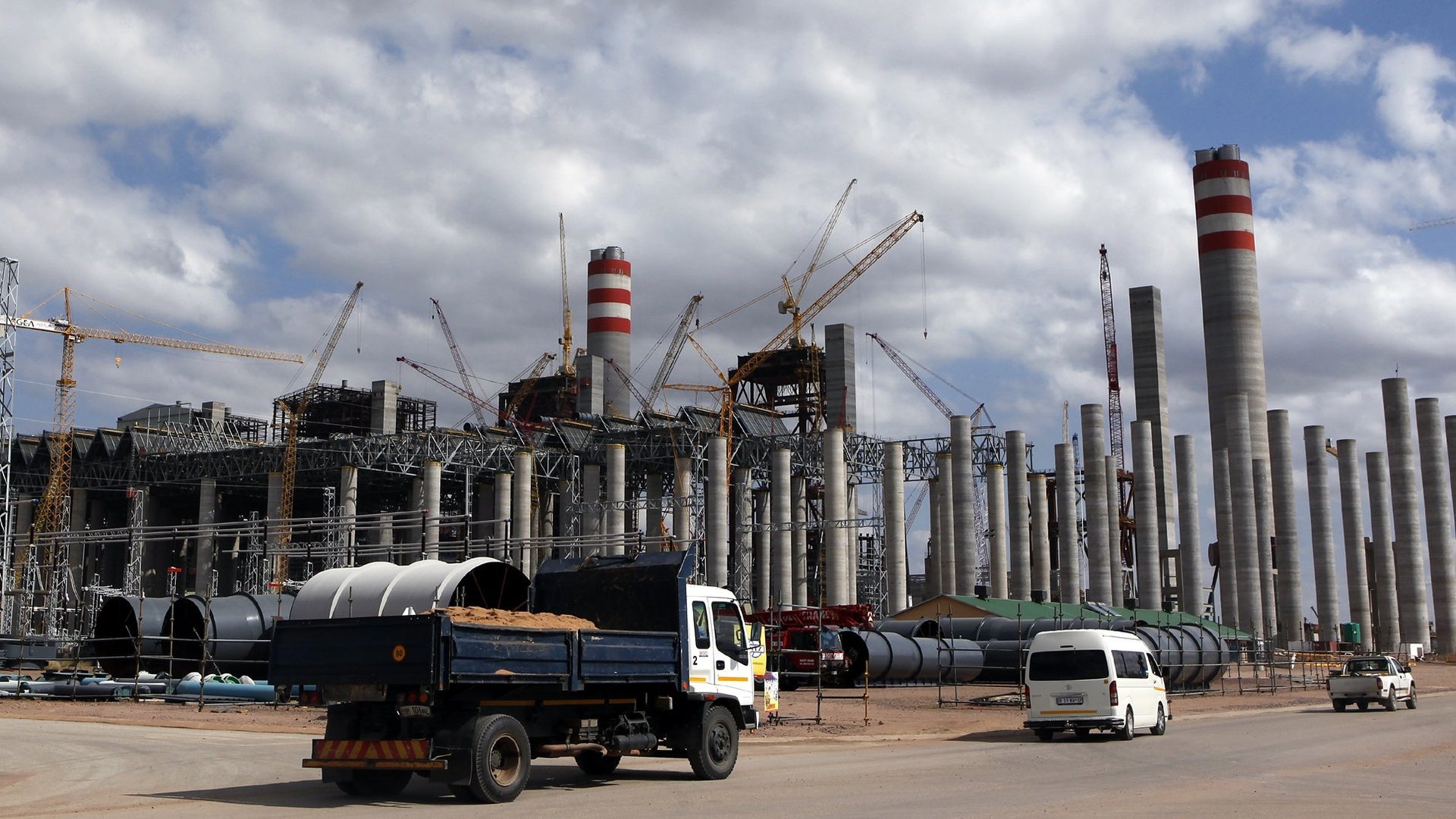In South Africa, corruption is a “public-private partnership” that protesters want broken up
On Sept. 28, American regulators slapped a $19 million penalty on Hitachi, over allegations that the Japanese conglomerate violated the Foreign Corrupt Practices Act (FCPA). According to the US Securities and Exchange Commission, Hitachi made payments totaling $6 million to Chancellor House Holdings, a front company of South Africa’s ruling party, the African National Congress (ANC), in order to win contracts relating to the construction of two large power stations.


On Sept. 28, American regulators slapped a $19 million penalty on Hitachi, over allegations that the Japanese conglomerate violated the Foreign Corrupt Practices Act (FCPA). According to the US Securities and Exchange Commission, Hitachi made payments totaling $6 million to Chancellor House Holdings, a front company of South Africa’s ruling party, the African National Congress (ANC), in order to win contracts relating to the construction of two large power stations.
Hitachi agreed to the settlement without admitting to, or denying, the charges. The ANC, which has governed South Africa since 1994 and received 62% of the national vote in the last election, says it has no information relating to the awarding of the contracts.
Corruption has become an Achilles’ heel for South Africa, which last year scored a 44 out of 100 on Transparency International’s corruption perceptions index. A score below 50, the organization says, is an indicator of “endemic corruption.”
For the most part, corruption in South Africa is seen as something that is unique to the public sector, an idea reinforced by scandals such as the one involving undue upgrades to president Jacob Zuma’s private house; the work cost South African taxpayers $23 million.
These perceptions suggests that government is the primary breeding ground for corruption. But the private sector’s hands aren’t so clean, either.
Indeed, the Hitachi case—one that involves a large, multinational company that seems to have exerted influence over a political party that has been in control of the state for 21 years—shows how corruption is, in the words of South African political commentator Steven Friedman, a “public-private partnership,” in which private interests are advanced by manipulating the state, benefitting both the corrupter and corrupted.
South Africans seem determined to wage a fight against the rot. Today (Sept. 30), South Africa expects to witness one of the largest anti-corruption demonstrations the country has ever had, with marches planned for both Cape Town and Pretoria. Organized by Unite Against Corruption—a coalition of civil society organizations, academia, faith-based groups, trade unions, and private-sector organizations—the marches will call for tougher action against individuals and companies found guilty of corruption.
Patrick Craven, one of the organizers, tells Quartz that the march—partly inspired by Brazil’s nationwide protests against corruption earlier this year—is only a start.
“It’s always been our intention that this march should not be an end of itself, but part of an ongoing campaign; we certainly don’t want to be seen to be making gestures,” he says. “The problem with corruption is that everyone says they’re against it, but no one wants to do the hard work of rooting it out.”